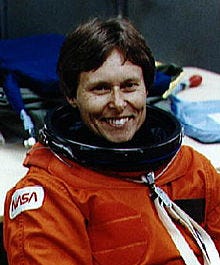Scholar and Falconry Enthusiast Adrian DeVuono Discusses Bob Dylan

Adrian DeVuono might be the funniest and most intelligent person to come from my hometown of Sault Ste. Marie. Unless that’s astronaut Roberta Bondar, who can be seen at the Thunder Bay Yuk Yuks this Friday through Sunday. DeVuono is rumoured to have delivered his dissertation while sporting a foam #1 finger. When he goes to a Sault Ste. Marie fine-dining establishment like Wacky Wings he says things like, “I’ll have a large grapefruit juice,” and when the waitress says, “We don’t have grapefruit juice,” he says, “I’ll just have a small.” He is, to the increasing disdain of his peers, a world traveler. Above all, he is a Bob Dylan fan.

Mike Sauve: Every time we talk there seems to be at least one "Wiggle Wiggle" reference or discussion of some abysmal Dylan song or 80s album. Why do you think bad Bob Dylan music is so much funnier than bad music in general? I guess one obvious reason is that he’s made so much good music.
Adrian DeVuono: I think Dylan's bad music is especially hilarious because, unlike other, lesser artists who simply make bad decisions and carry them out with obnoxious sincerity, Dylan always sounds like he can't remember who made a decision regarding a song's lyric or production element, or why that decision was made, even as he's meandering helplessly through it. That quality, which they called "mystical" in the sixties, in the later years is just a kind of shellshocked confusion. On these awful recordings he sounds like a heavily-medicated Marx Brother or, better yet, Chance the Gardener from "Being There." He's completely lost. He just utters these bizarrely cryptic lines ("Wiggle Wiggle 'till you vomit fire"), sounding as if he's in constant danger of slipping back into the fog of a dental anesthesia while an amateur band herded from the local casino blissfully and vacantly hammers away at a vaguely "bluesy" chord progression. Listen to "Brownsville Girl": while Bob is unspooling eleven exhausting minutes of a plot summary of a Western he thinks he remembers seeing, a group of Gladys Knight impersonators starts shrieking out inappropriate responses like a gospel choir moaning in exaggerated sexual distress. It's almost as if, with every inappropriate "mmmm-hmmmm" and "whrrraaaaoooogh," Dylan gets startled to the point of distraction ("What the hell was that?") and loses his place in the story. It's very funny to hear Dylan so lost, confused, and kind of apathetic, especially after something like "Sad-Eyed Lady of the Lowlands."
http://www.youtube.com/watch?v=ZbKlABsChiA
MS: While we’re talking humour, one of my favourite things about Bob Dylan is that even if he hadn’t written so many important songs, so many beautiful songs, so many groundbreaking songs, he’d still be adored as one of the great humorists. In the early 60s he was often compared to Charlie Chaplin, and even in recent years his dancing has been downright hilarious. Can you discuss Dylan as humorist?
AD: Dylan's humour has so many sides, so many modes of expression. Sometimes he's silly ("The Basement Tapes") and sometimes he's giddy ("I Want You"); sometimes its scathing social satire ("The Groom's Still Waiting at the Altar"), sometimes it's derisive put-downs ("Positively 4th Street") and sometimes it's theatre of the absurd (Bob Dylan's Dream). Dylan's best songs, however, are convulsive and cubist in structure. Here, humour is used as one more prop in Dylan's bag of lyrical tricks. Even at his most topical, Bob understood how tears of rage, tears of sadness, and tears of laughter are indistinguishable. Listen closely to "The Lonesome Death of Hattie Carol," especially the last verse, and you'll hear how he constructs it as an elaborate, difficult joke. William Zanzinger's six-month sentence, within the construction of that song, is played as a cruel prank, a horrible joke -- but a joke nonetheless. The way he builds up to that last line, with mawkish, sarcastic rhymes and perfectly-timed delays, shows that he's arriving at a punchline. Elsewhere, the image of "guns and sharp swords in the hands of young children" comes off as no less absurd than any of the brilliantly arranged comic set-pieces in "Bob Dylan's 115th Dream." Within the absurdist, cubist universe of his lyrics, no image is stable enough to be confined to a single mode of expression. There's a current of sneering, derisive, impudent, impish, downright goofy laughter on those early masterpieces. No one comes away without being riffed on. I think he picked this up from Allen Ginsberg who would read "Howl" to college audiences and would have them all howling with laughter. Everyone got mocked. I'm glad Bob rediscovered this skill on his recent albums and I think that's why they're so much better than the stuff that preceded them. When he excavated the surrealist side of Americana (particularly on "Love and Theft" and "The Tempest"), he seemed to find rejuvenation from wearing that mischievous mask again. It's amazing to hear him, in a growling voice, stacking these complex, multifaceted comic images that fuse Mark Twain's riverboat ribaldry and Guillaume Apollinaire's cubist verse until he's rehearsing this hilarious and horrifying apocalyptic vaudeville. It's open mic night with Stagger Lee! Howlin' Wolf doing his impression of Benny Goodman! There's still plenty of laughter for, and at, this brutal world he seems to be saying on his most recent recordings. That'll be his legacy as a humorist.
http://www.youtube.com/watch?v=j1h4a4HsBho
http://www.youtube.com/watch?v=1roDK4949kg
MS: As an academic what do you think of the surge of Bob Dylan studies, Bob Dylan wings being built at all the major institutions, etc.?
AD: I know it's inevitable, but it is unsettling all the same. I just hope that students don't forget what made him so dangerous, what made him such a threat to the very establishments they'll be publishing papers for and pursuing tenure within, in the first place. I hope, also, they appreciate the irony of studying a poet who railed against these places which sell "roadmaps for the soul." I take comfort, however, in the fact that his recordings - especially the live ones from 1966 and 1975 - are so volatile, so threatening, so aggressively defiant, that they'll retain their unsettling power for decades to come.
http://www.youtube.com/watch?v=8VoGs6johJI
http://www.youtube.com/watch?v=JS-7IoUwVsI
MS: Every year there’s some buzz that Dylan should receive the Nobel Prize for Literature, then some grey-bearded defenders of Literature harrumph their way into the conversation and say it should go to someone experimenting with aphonetic clicking sounds as text. You think he should get it?
AD: No, I don't think he should get it. To explain why, I'll paraphrase a terrific argument I read once, though I can't for the life of me remember where. The author of that piece argued, quite rightly, that Dylan, though deserving of the award, doesn't need it and we don't need Dylan to receive it. No one will discover Dylan because of the award; he has all the recognition he needs and requires to transmit his art. He was in a Victoria's Secret commercial with Adriana Lima, for God's sake. No one needs a Nobel after that. His genius has been acknowledged worldwide. But there are other brilliant and deserving writers, who are reading their novels or poems to rooms of maybe twenty or thirty people (while Dylan continues playing incomprehensible versions of "Blowing in the Wind" to basketball arena-sized crowds), who do need the Nobel - which immediately guarantees financial stability and a wider audience - in order to continue creating. Yes, the Nobel committee makes indisputably pretentious selections but, for every poet exploring aphonetic clicking, there's a Jose Saramago or a Kenzaburo Oe whose books start appearing on bookshelves, in deserving translations, outside of their homeland. I'd rather see the attention and cash go to Peter Nadas or Adonis, just for the sake of discovery, rather than pinning one more gold medal on the chest of the man who gave the world "Down in the Groove."
MS: Tarantula is not a very good novel, but it does have some funny moments. From a literary perspective, what do you think of just reading Dylan songs on the page.
AD: I have trouble with it. The music belonging to those words is too deeply set in my memory for the lyrics themselves to take on any independent rhythm or meaning. I wonder if you can even divorce the two like that. I mean, it'd be like reading a poem in translation - there would always be an element missing. It would be an interesting experiment though: give, say, "Visions of Johanna" to a scholar who has never heard the song and ask for an analysis.
http://www.youtube.com/watch?v=hBiwMT77Csg
MS: Do you ever mishear Dylan until you read the lyrics? For years I thought “Yonder stands your orphan with his gun” was “He understands your orphaned with his gun”, which, to the credit of my subconscious, may be a better line.
AD: There was a long period of time when, if asked, I couldn't say with absolute certainty that I recognized more than ten words in "Jokerman" as belonging to the English language. Everyone who has ever wanted to do a bad Dylan impersonation at a party for easy laughs should start here.
http://www.youtube.com/watch?v=1XSvsFgvWr0
MS: I think you understand that for a serious fan, to see Dylan in recent years is to really hope to hear one or two perfect songs. I remember you were ecstatic to have heard "Nettie Moore" in 2006, and some other song when you were in Italy, can you talk about that moment when you realize he’s playing the song you came to hear?
AD: When I saw Dylan in Viareggio, I remember that I had half an hour to get my ass over to the station to catch the last train back to Florence. I decided to stay, as I hadn't really heard anything memorable up to that point. I was rewarded with an absolutely mesmerizing version of "Not Dark Yet" where Dylan sang the line "sometimes I don't know why / I should even care" in a soft Dean Martin croon, where he adopted the attitude of what, in Italian, we call a menefreghista - someone who simply doesn't give a fuck. Suddenly, the song shed the bottomless despair of the studio version and took on this resigned, accepting, satisfied sadness. For six minutes I watched Dylan inhabit the ghost of Roberto Murolo as he transformed "Not Dark Yet" into one of those unbearably light Neapolitan canzone of sweet Mediterranean melancholy. It was a perfect fusion of sound and place. Dylan as early Roman king. I slept in the train station that night on a bench. I have no regrets.
http://www.youtube.com/watch?v=xX94xxPftwo
MS: Top Five Dylan songs the casual listener has never heard?
AD: To Ramona
One Too Many Mornings (Live 1966)
Romance in Durango
Red River Shore
Highwater (for Charley Patton)
http://www.youtube.com/watch?v=dW81cD4pqoE
MS: Favourite Dylan album?
AD: Blonde on Blonde.


